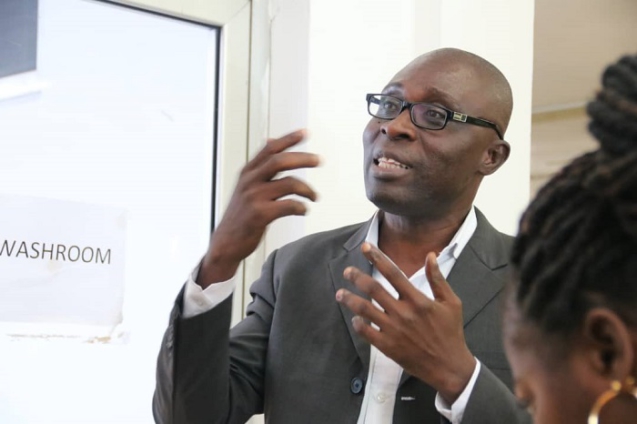The General Secretary of the Ghana Journalists Association (GJA), Mr. Kofi Yeboah, has called for an end to the criminalisation of free speech in Ghana, describing it as inconsistent with the spirit and letter of the 1992 Constitution.
His comments come in the wake of the recent jailing of a blogger for publishing false news about the dollar, while the Member of Parliament for Bolga Central, Isaac Adongo, who made a similar public claim, has not faced prosecution. The incident has sparked renewed debate over Section 208 of the Criminal and Other Offences Act, 1960 (Act 29), which criminalises the publication of false news likely to cause fear and alarm to the public.
Speaking on JoyNews’ The Law on Sunday, he said the GJA opposes any attempt to criminalise free speech.
“Our position is that we cannot — and we should not — criminalise free speech,” Mr. Yeboah said.
“The example you gave, where a blogger was jailed for 30 days while an MP walked free for a similar offence, only confirms what we’ve always maintained: even where the law is applied, it is done selectively. Otherwise, why wouldn’t the MP also be arrested and prosecuted under the same law?”
He criticised what he described as the biased and selective application of the law, particularly by the police, whom he believes disproportionately target media professionals.
“In our humble view, if you look at the 1992 Constitution and interpret it as a whole, it leans strongly toward protecting and guaranteeing freedom of speech and expression.”
He cited Article 21(1)(a), which guarantees freedom of speech and expression, and Article 21(1)(f), which upholds the right to information.
Mr. Yeboah also pointed to Chapter 12 of the Constitution, which promotes media freedom, and Article 163, which enjoins state-owned media to provide fair opportunities for the presentation of divergent views and dissenting opinions.
“All these provisions are geared toward deepening democracy and encouraging civic engagement. If this is truly the aim of our Constitution, why then should we seek to silence free expression through criminal prosecution?”
He further argued that misinformation should be countered through civil remedies, public corrections, or regulatory sanctions, rather than punitive criminal action.



